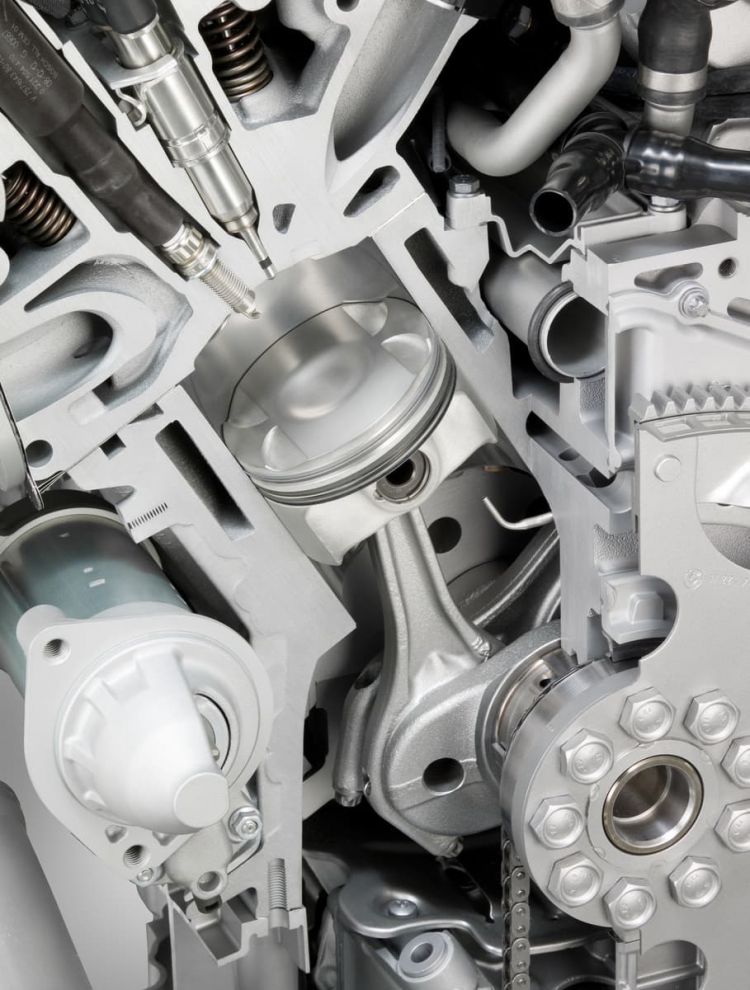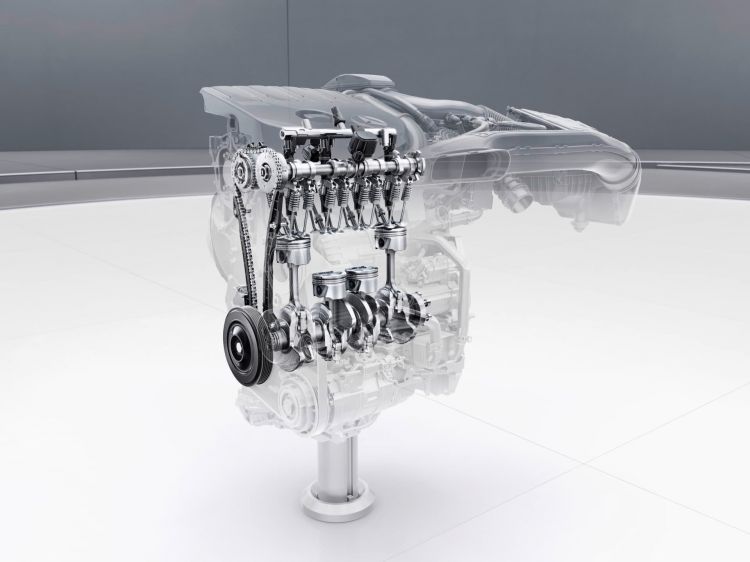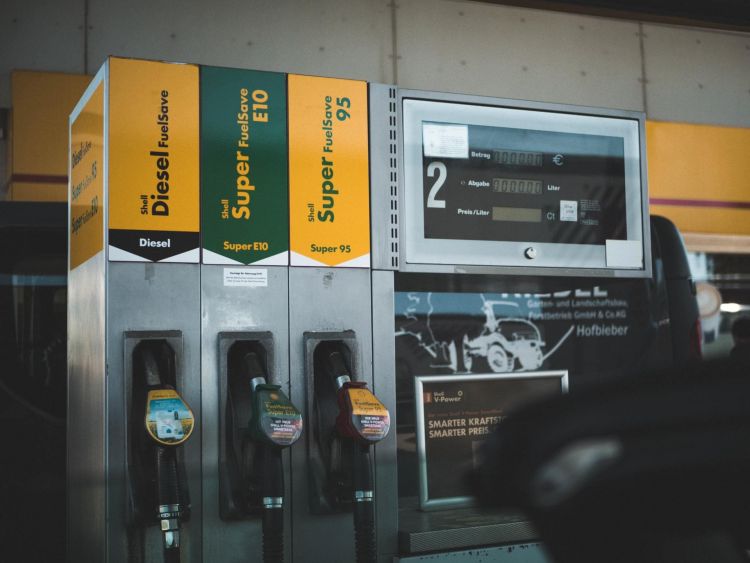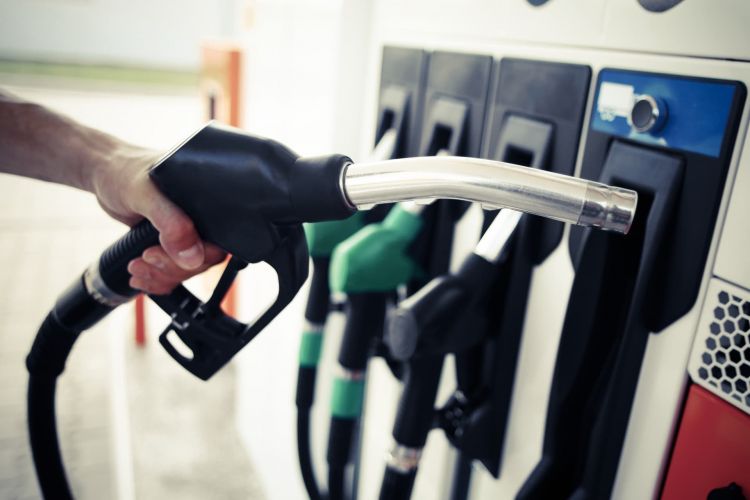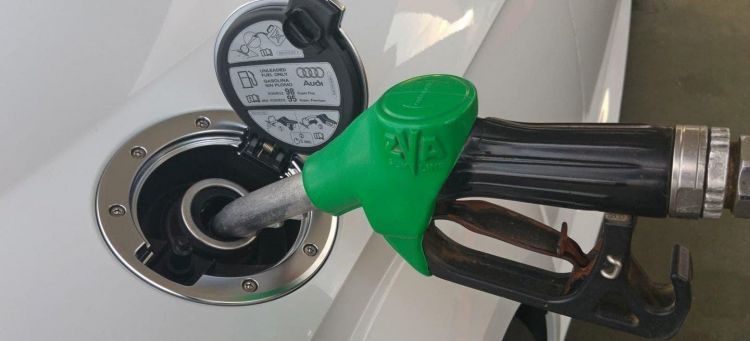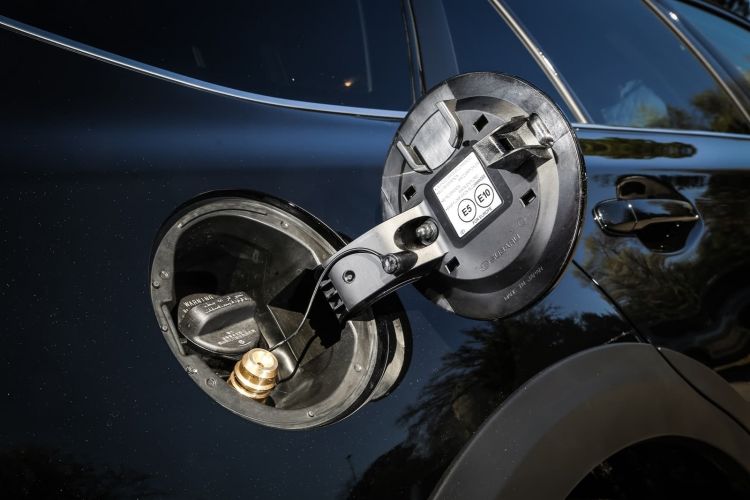The cycle change in favor of gasoline is more than evident. As data, in 2023 three times as many gasoline cars have been registered as diesel, which means that more and more drivers wonder if it is better to use 95 or 98 octane gasoline. Let’s clarify what to do and in which case it is better to refuel one or the other.
What is compression ratio?
First of all, it is convenient to lay a bit of a foundation and explain two key concepts in the subject at hand: the compression ratio definition and the problem-fault known as knocked rod or self-detonation.
We start with the compression ratio. The volume that is filled with air and gasoline inside the engine is the sum of two volumes, the displacement and the combustion chamber volume. The first of them is the space that the piston sweeps from PMI (bottom dead center) to PMS (top dead center), and the second is, as its name indicates, that of the combustion chamber, space in which the process of detonation and explosion of gasoline takes place. In this way, the air that reaches the cylinder during the intake time occupies the sum of both volumes and is compressed until it occupies only that of the combustion chamber. A) Yes, The ratio of the total volume to the volume of the combustion chamber is called the compression ratio.usually expressed as Rc : 1.
The compression ratio indicates how much the air entering the cylinders is compressed.
This value is usually comprised between 8 and 12 for gasoline engines, placing the most common in the lower part and the most high-performance ones in the upper range. However, diesel engines have a higher compression ratiousually in 16 and 18, which makes them engines with a much higher performance, understanding performance as how much useful energy in the form of movement they can extract from what is theoretically contained in 1 liter of fuel, at least in theory and taking into account the laws of thermodynamics.
What does the connecting rod knock or self-detonation consist of?
The phenomenon known as self detonation either auto start It occurs when the gasoline present in the mixture detonates or explodes spontaneously in the upward stroke of the piston in the compression phase and without the spark having occurred at the spark plug, that is, combustion occurs earlier than it should. This explosion “hits” the head of the piston and tries to push it downwards, contrary to its natural movement and coordinated with the others, which produces a loss of power, deformations in them and tensions in the connecting rod, as well as a very characteristic sound in the form of a rattle that is known as crankshaft.
The knocking of the connecting rod, self-ignition or self-detonation consists of an advance of combustion.
The causes of this self-detonation of gasoline can be found in a excess pressure or temperaturea poor quality fuel or a bad ignition setting. In the latter case, we would not be talking about a self-detonation strictly if we stick to the vocabulary of the word, since the gasoline has exploded as a result of the spark provided by the spark plug, only that spark has not occurred at the right time. In practice, the consequences are the same, but not its solution.
To avoid this problem, the motors are equipped with a knock sensorwhich detects when self-ignition occurs, and adapts several parameters, such as turbo pressure (if equipped), ignition advance, injection point or even injects a greater amount of gasoline to cool the cylinder and achieve lower the temperature, since when gasoline evaporates it “steals” heat from the environment.
What is the difference between 95 and 98 octane gasoline?
The The main difference between 95 octane gasoline and 98 octane gasoline is its octane rating..
The octane number is an index that indicates the anti-knock power of gasolineThus, the higher the octane rating, the lower the possibility of suffering self-detonation problems. Regarding its appearance, the 98 gasoline presents an intense blue, while the 95 is duller, but this is due to practical issues to identify them. The other big difference is the price. 98 gasoline is about 15 cents/l more expensive.
Regarding chemical composition and additives, oil companies are not very prone to give these data publicly. If we consult the technical sheets we can verify that all of them trace the values in each parameter, except in the octane. One of the few discrepancies, and only in the case of Cepsa, is found in the amount of oxygen, 2.7% m/m in its STAR 95 and 3.7% m/m in its ÓPTIMA 98. Regarding the sulfur content, all oil companies and octane ratings agree on 10 mg/kg.
On the contrary, and to justify this overprice, in the main oil companies offer a series of additives in their 98 octane gasoline, which indicate that they provide greater cleaning, reduce the amount of carbon or optimize consumption. How effective they are is another matter.
What gasoline to use? 95 or 98 octane?
Refueling with 95 or 98 octane gasoline will depend exclusively on the instructions of the manufacturer of your cardepending on its engine, its compression ratio and under what specifications it was designed.
To find out what gasoline your car needs, all you have to do is check the sticker on the fuel tank cap. or the instruction manual.
What happens if you put 95 gasoline instead of 98?
Using 95 octane gasoline in an engine prepared to use 98 octane gasoline reduces engine performanceincreases consumption, the level of emissions and, in the long run, it can cause a breakdown.
Modern cars have a knock sensor that will cause the ECU to adapt its operation and possibly make the engine feel less smooth and sluggish. In the very long term and due to continued use of a lower octane fuel, it is possible that a mechanical problem may manifest itself despite having that knock sensor.
What happens if you put 98 gasoline instead of 95?
If we refuel 98 gasoline in an engine prepared to use 95 octane gasoline, it does not bring any benefit to the engine and you will not experience any improvement in terms of consumption or power. It really is a waste of money. In any case, nothing dangerous happens if one gasoline is added instead of the other.
Unless the manufacturer of your car indicates it, refueling with 98 gasoline will only make you spend more money.
What cars should refuel with 98 octane gasoline?
In general, cars with compression ratios greater than 10.5 should use 98 octane gasoline. In them, it is recommended to use 98 gasoline. In this way it is possible to extract all the potential with which the engine has been designed.
My car can refuel with 98 or 95 octane gasoline, what do I do?
The manufacturers of some modern cars with turbocharged engines indicate that they can use both types of gasoline: either 98 or 95 octane (see photo). So perhaps the question arises: is there something wrong with using 95 octane gasoline on a regular basis?
In this specific case, using 95 octane gasoline on a regular basis would not cause reliability problems, even in the long term, thanks to the fact that the knock sensor makes the ECU adapt its operation. On the other hand, with 95 octane gasoline, the vehicle does offer slightly lower performance and somewhat higher consumption.
Diesel also has its “own octane number”: cetane number
As a last note and curiosity, in case you were wondering, diesel also has another parameter to measure its quality, although unlike gasoline it is not as well known. Its about cetane index and indicates the time that elapses between the injection of the fuel and the start of combustion. Thus, the higher the cetane index, the shorter the time that elapses, giving rise to a higher quality combustion and with less waste.

